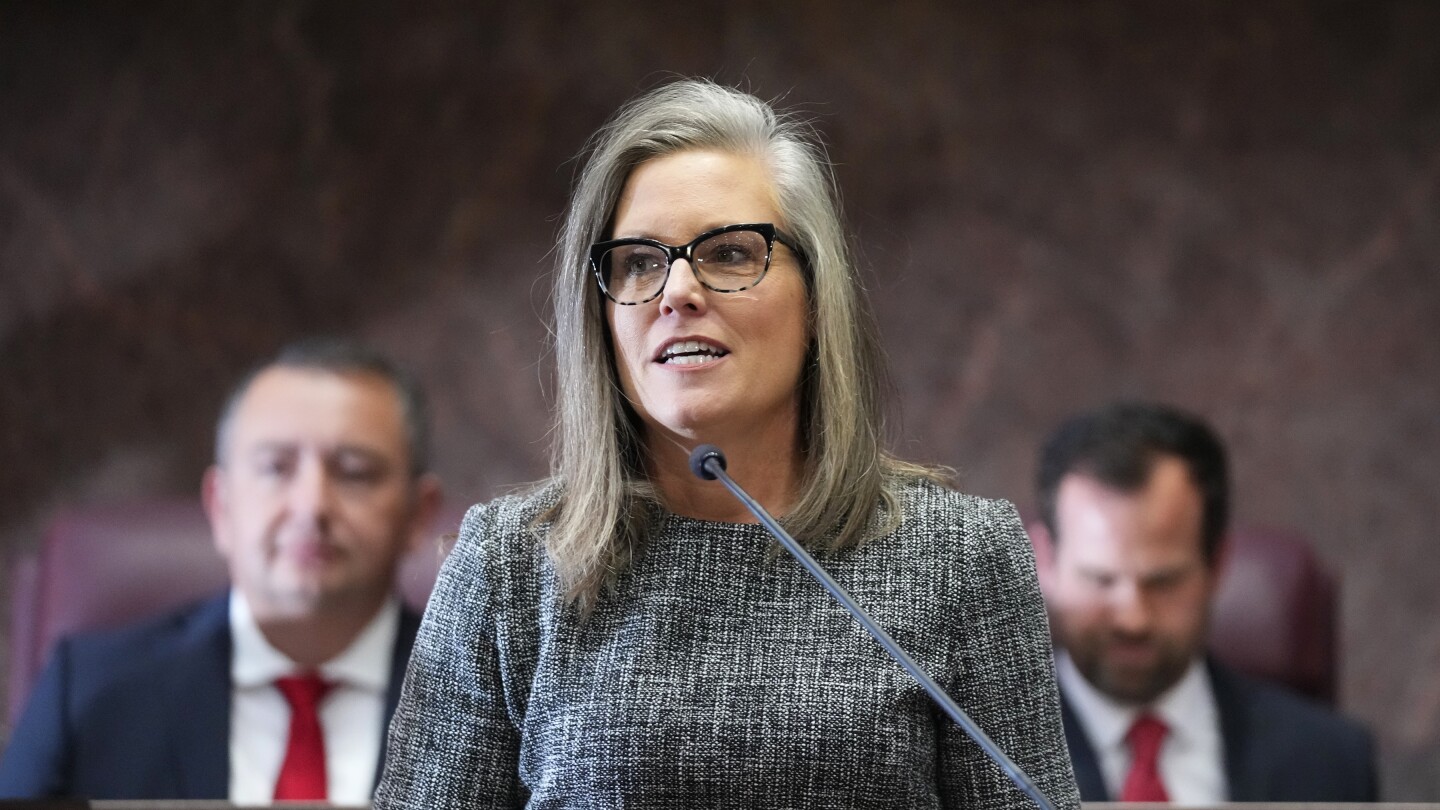A steep budget deficit caused by plummeting tax revenues and escalating school voucher costs will be in focus Monday as Democratic Gov. Katie Hobbs and the Republican-controlled Arizona Legislature return for a new session at the state Capitol.
The Legislative new year officially begins in the afternoon with the governor’s annual State of the State address The goal is to wrap up the legislative session within 100 days, but lawmakers typically go until May or June, especially when there are difficult problems to negotiate like a budget shortfall.
The state had a budget surplus of $1.8 billion a year ago. But it now has a shortfall of about $400 million for the current fiscal year and another $450 million shortfall the year after.
A tax cut approved by legislators in 2021 and signed into law by Hobbs’ Republican predecessor, Gov. Doug Ducey, replaced the state’s graduated income tax with a flat tax that took full effect last year. Arizona subsequently saw a decrease of over $830 million in revenues from income taxes, marking a nearly 30% decline from July through November.



Like a less popular sport like the NHL is going to be really profiable. Getting rid of the flat tax and school vouchers would be more effective.
Tax code change wouldn’t really be very effective for an arena not on state land though so for the arena I was talking about I disagree. How much tax does the dump give them in it’s stead? Seems like a straight downgrade.
Sounds lke the voters dodged a moneysink.
https://www.nytimes.com/2021/12/17/sports/hockey/arizona-coyotes-glendale-nhl.html
https://www.businessinsider.com/arizona-coyotes-tempe-new-arena-vote-funding-sports-stadiums-taxpayers-2023-1?international=true&r=US&IR=T
From your own source
Man how dare they ask for 200 million for a 2 billion plan that included cleaning up the area themselves and even adding housing instead of putting that burden on the taxpayers where it now rests again. Brilliant move. Its gonna cost as much or more to remove the trash and make the land available for any kind of non dump use.
You’re repeating general findings and applying them to a deal with specifics you refuse to understand or even respond too. 200 million barely covers the restoration of the landfill, and more of this offer was privately funded than any other stadium offers period. There simply has not been a better deal for the cities in any major american professional sport than this one, so if you really dislike stadiums seeping public funds maybe support the ones that use less of it. Still waiting to see how much it’s gonna cost taxpayers to clean and reclaim that land on their own burden.
Rich people are not going to stop building stadiums, the government will not stop subsidizing rich peoples anything. This whole debacle says ‘dont bother sweetening the deal, stick with what was working because if they’re gonna say no, they will say no.’
I